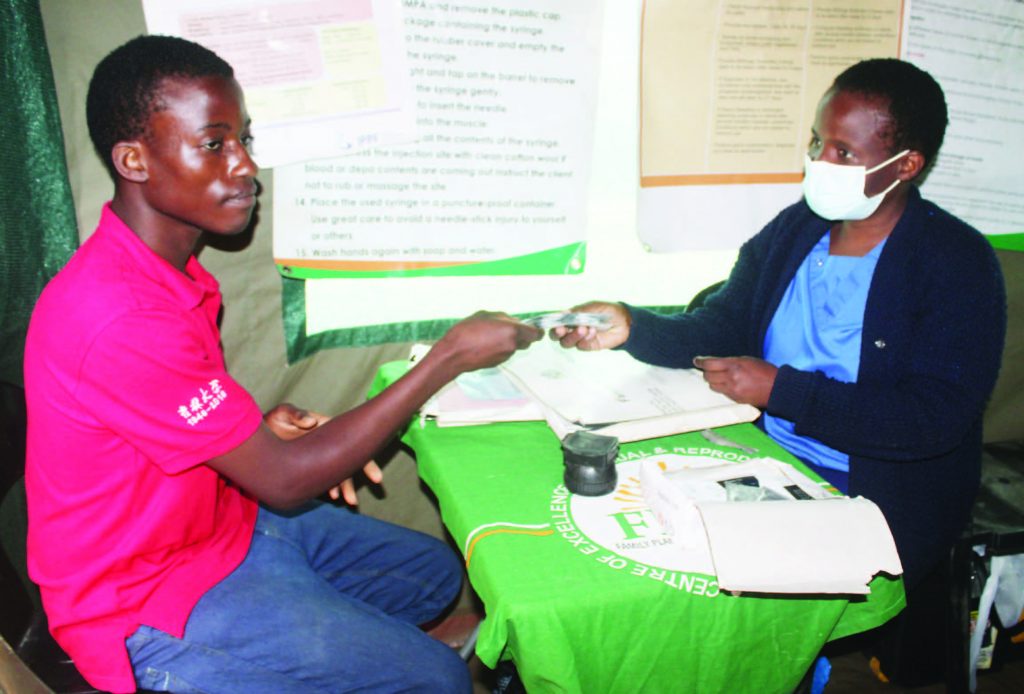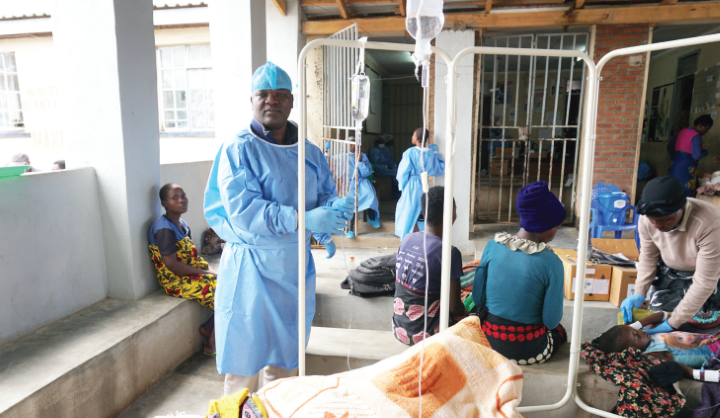Protecting young dreamers
Access to sexual and reproductive health (SRH) services remains a challenge for most young women in Malawi, with one in every three falling pregnant before their 19th birthday.
Chifundo Rosario, 18, blames this on long walks to health facilities where the privacy of young people is seldom guaranteed.

The boy believes that sexually-active young people should access to SRH information and services, including contraceptives, without any barriers.
In the hilly territory of Chief Chekucheku in Neno, boys and girls struggle to lay their hands on condoms.
Rosario said: “Condoms are too expensive for those of us who depend on our parents. Most young people are sexually active, but they engage in unsafe sex because it is hard for them to request money for buying condoms.”
This raises the risk of early pregnancy and marriage as well as sexually transmitted infections (STIs), including HIV.
Rosario has to walk about 20 kilometres to get free condoms at Neno District Hospital.
“The trip costs K4 000 if you hitch a ride in a minibus or on a motorcycle,” he says.
Condoms remain the most preferred method used by boys to avoid unwanted pregnancy and STIs. Girls prefer contraceptive pills and injections because of privacy.
“Condoms are easy to carry and hide from our parents. Although they know that we are sexually activite, they rarely talk about sex at home,” Rosario states.
He urges parents to open up and freely discuss sexual issues with their children to prevent misinformation and peer pressure.
Beatrice Banda, a 19-year-old girl from Champiti in Ntcheu, fell pregnant aged 17.
“I was not ready to be a mother. I was devastated at first, but I had to accept the situation. Being young, I feared for my life and future,” she says.
The fear of getting an unwanted pregnancy again drove Beatrice to start using injectable contraceptives to protect her future.
“The first pregnancy made me drop out of school when I was in Form Two. Now my goal is to finish secondary school and become a nurse,” she says.
Thanks to Nzatose Project funded by Family Planning Association of Malawi (Fpam) in partnership with PSI Malawi and Act Alliance, both Rosario and Beatrice are happy with their choice.
The project underway in Ntcheu and Neno is funded by the International Planned Parenthood Federation to improve young people’s access to comprehensive SRH and rights and HIV prevention information and services.
Group village head Msamanyada, Traditional Authority (T/A) Champiti in Ntcheu says increased access to SRH services has contributed to the reduction of early pregnancies and marriages as well as STIs.
Fpam behaviour change and communications lead Bishop Mkandawire says the project empowers young people to get SRH services, including contraceptives,
He says: “We want young people in hard-to-reach areas to access information on issues that affect them, including accessing quality and adequate health services.
“Our approach uses mobile clinics because one reason people fail to access health services, especially SRH, is long distances to health facilities.”
Beatrice says she was given adequate information about a diversity of contraceptive methods, but chose the injection because it is secretive.
“Even married women like the jab because their husbands cannot tell that their wives are using contraceptives,” she says.
Antony Sandiyang’ane, coordinator of adolescent and youth-friendly health services at Neno District Health Office, says the mobile clinics have reduced the pressure the hospital used to experience when providing SRH services in remote areas.
The Malawi Demographic Health Survey of 2015 shows a girl is likely to have at least four children in her life, down from about six in 2010.
However, a third of girls in Malawi becomes mothers before reaching 19 and nearly half marries before 18 because they cannot lay their hands on contraceptives.
The National SRHR Policy requires service providers to make SRH services available in a youth-friendly manner at both facility and community levels.”





